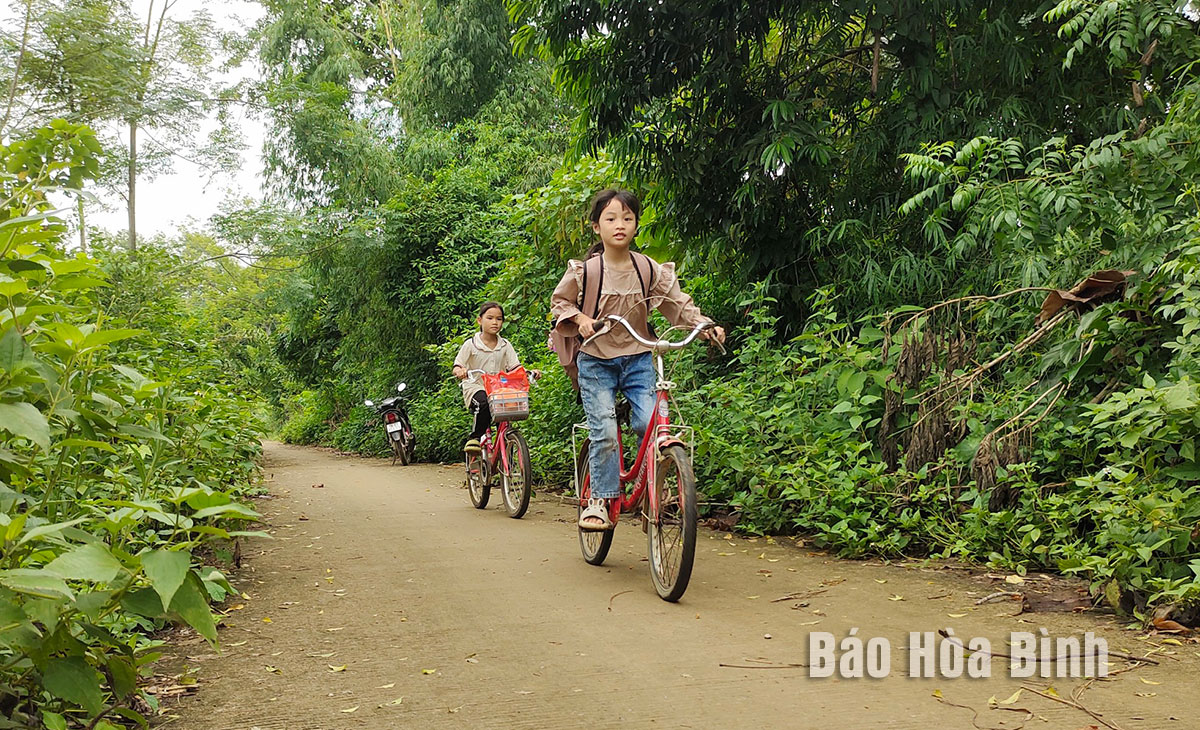
According to the report of the People's Committee of Lac Son district, implementing Sub-project 1 (Project 4) on investing in the essential infrastructure to serve production and life in the ethnic minority and mountainous areas, the total capital plan assigned by the Central budget to the district is nearly 110 billion VND.

In recent years,
the essential infrastructure in Lac Son district has been increasingly invested
and improved. The photo: The road inside Ong Man hamlet, Chi Dao commune.
From 2019 until
now, the district has disbursed over 80.5 billion VND, reaching 73.2% of the
assigned capital plan.
Accordingly, the
District People's Committee has invested in new construction, upgrading and
repairing 54 works, including building and upgrading 32 traffic works; 5
infield road and irrigation projects; 1 central market in Binh Hem commune; 1
auxiliary item for the central stadium of My Thanh commune; newly building,
repairing and upgrading 15 cultural houses and community houses; Non-business
capital to carry out the renovation and maintenance of 332 projects with a
total investment of nearly 8.5 billion VND.
Thereby, it
helps clearly improve almost all aspects of socio-economic life in the ethnic
minority and mountainous areas in the district.
The Standing Board of the Hoa Binh provincial Party Committee has agreed in principle on a proposal by the Standing Board of the Party Committee of Hoa Binh city to gather feedback on the city’s 1:2000 zoning plan, which forms part of its broader urban development strategy.
Hoa Binh province has made notable progress in public administration reform and digital government development, with the satisfaction index among citizens and businesses reaching over 84%, according to recent government evaluations.
Thanks to great efforts by local authorities in recent times, the governance and public administration performance of Mai Chau district has been significantly improved.
In the afternoon of June 6, the Party Committee, the People's Council, the People's Committee and the Fatherland Front of Lac Son district solemnly held a meeting to celebrate the 139th anniversary of the district's founding (1886–2025) and the 79th anniversary of the establishment of the district's Party Committee (1946–2025). There was the attendance of Mr. Bui Van Thang, the Vice Chairman of the Provincial People's Council; Mr. Quach Tat Liem, the Vice Chairman of the Provincial People's Committee; Ms. Dang Bich Ngoc, the Deputy Head of the National Assembly Delegation of the province; as well as the former leaders of the province and district through various periods, who are the natives of the district.
Implementing the Politburo’s Resolution No. 57-NQ/TW on breakthroughs in science – technology, innovation, and digital transformation is a golden opportunity for the northern mountainous province of Hoa Binh to renew growth model, improve competitive edge and shorten digital gap.
Resolution 57-NQ/TW, issued by the Politburo on December 22, 2024, identifies sci-tech, innovation, and digital transformation as strategic breakthroughs to build a developed and prosperous nation. In Hoa Binh province, this spirit is not just a slogan, it’s being put into action through concrete initiatives that form a "new development triangle”: digital citizenship, digital economy, and digital administration.



